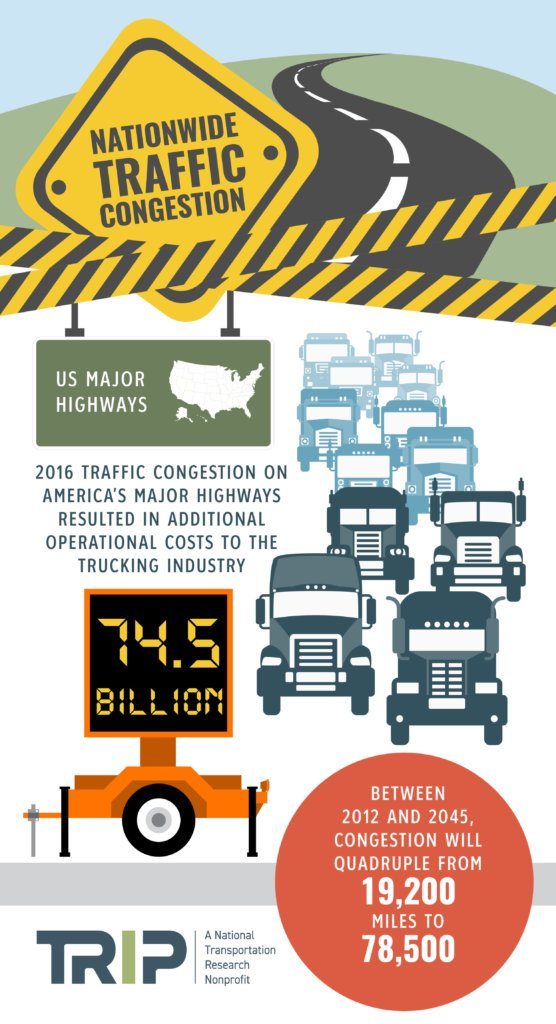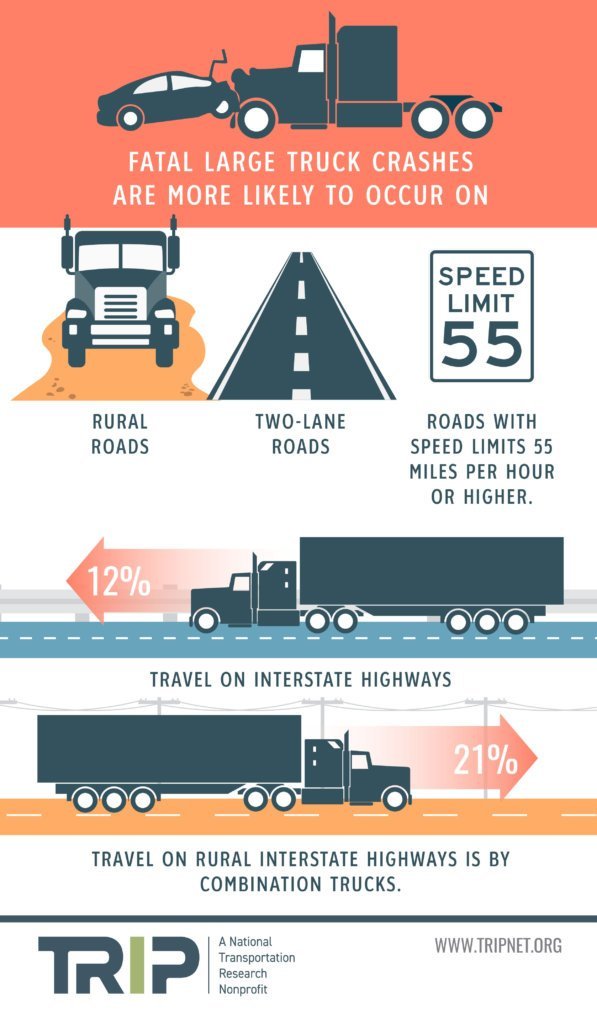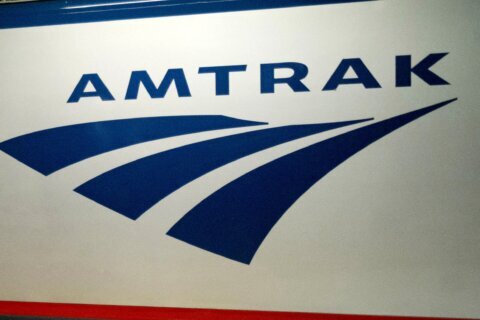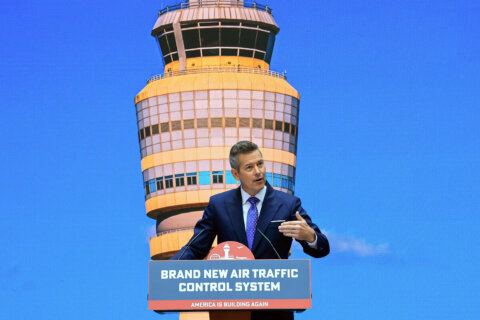Traffic around the D.C. region is getting worse and worse, so it takes people longer to get from place to place. In turn, that costs locals not just in lost time, but also in wasted gasoline that burned off idling in traffic. And it’s also costing the area in other ways, too.
“The growing level of traffic congestion … is also slowing down the trucks that we rely on to get goods to consumers,” said Rocky Moretti, the director of research and policy for the national transportation research firm TRIP. “The latest report finds that the cost to truckers is $74 billion a year in lost time and operation costs due to traffic congestion.”

The report finds a fifth of all traffic on rural interstates are tractor trailers now, and the total number of trucks is only going to increase in the years to come as the amount of goods consumers buy keeps increasing. But the increase in all this freight at a time when roads are already congested and slow means that freight is stuck in the same traffic as everyone else.
“Over the next 25 years, the amount of miles where more than one out of four vehicles are [tractor trailers] is going to more than double,” Moretti said. “The bottom line is we’re more and more reliant on freight transportation based on consumer demands, based on the way businesses operate, but we don’t have the infrastructure in place to move that freight in a convenient fashion. That’s going to slow productivity and increase costs for Americans.”
Moretti said an overstressed infrastructure system is also making the roads more dangerous, and even deadly, at a time when we want the things we buy to come to our doors quicker and faster.
“In the last five years, there’s been a 20% increase in traffic fatalities related to crashes involving large trucks,” Moretti said. “The lack of adequate capacity for the tremendous increase in freight transportation is costing us in terms of congestion, [but] we’re also seeing more fatal traffic crashes involving large trucks. It’s really a symptom of — we don’t have an adequate transportation system in place for the significant increase in our reliance on freight transportation.”









